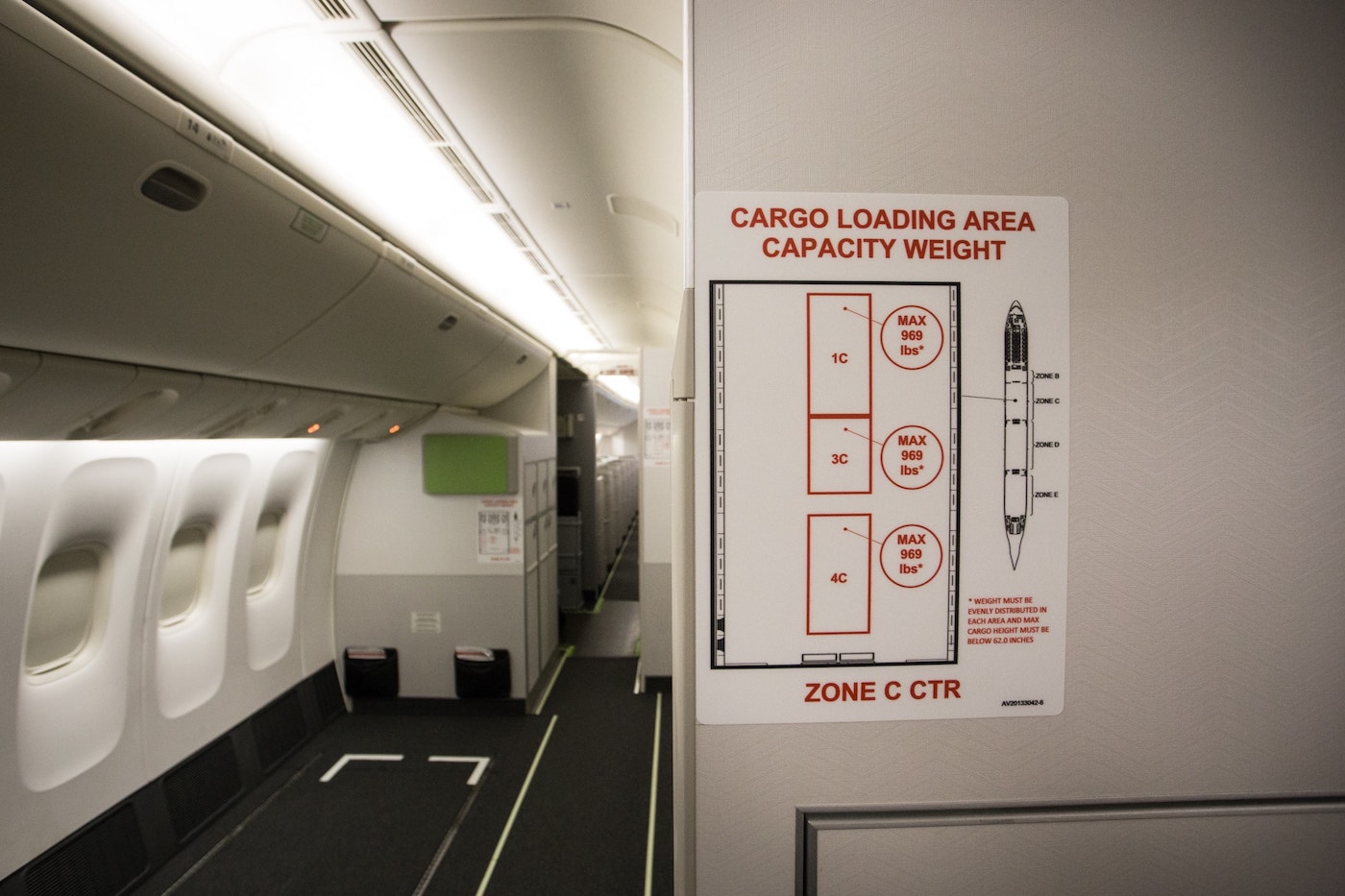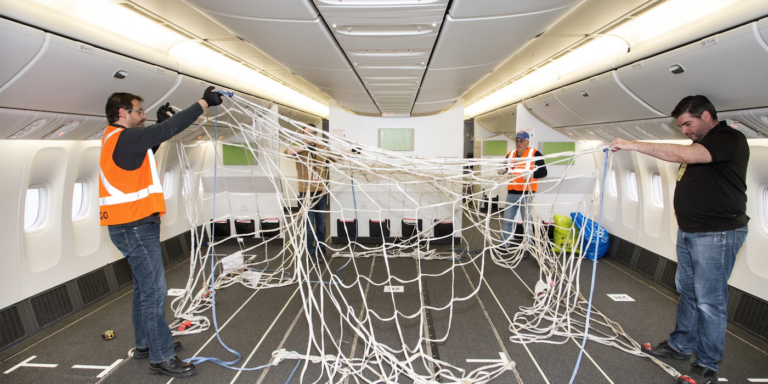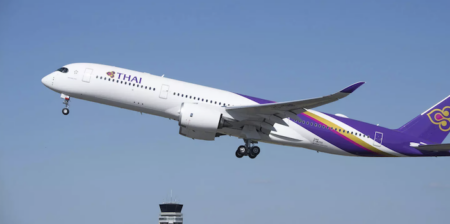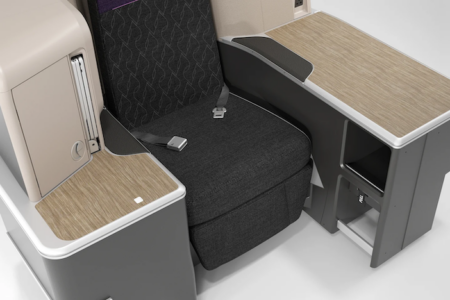Air Canada is reconfiguring the passenger cabins of three of its Boeing 777-300ER aircraft to enable additional cargo capacity. The first aircraft conversion is complete and is now in service, with the second and third aircraft to be completed shortly.
The three aircraft are being converted by Avianor, an aircraft maintenance and cabin integration specialist, at its facility in Montreal-Mirabel. Avianor developed a specific engineering solution that enables the removal of 422 passenger seats, which opens up designated cargo loading zones for lightweight boxes containing items such as medical equipment, restrained with cargo nets. This modification was developed, produced and implemented within six days, including certification and approvals by Transport Canada.
“The transformation of the Boeing 777-300ERs, our largest international wide-body aircraft, doubles the capacity of each flight and will enable more goods to move more quickly,” said Tim Strauss, VP of cargo at Air Canada.
“The rapid transformation of some of our aircraft to meet cargo demand reflects our ability to maximise our fleet assets quickly when these aircraft would otherwise be parked, added said Richard Steer, SVP of operations at Air Canada. “Air Canada’s engineering team worked around the clock to oversee the conversion work, and with Transport Canada to ensure all work was certified as tasks were completed. The next two aircraft are on track to be completed and will be in operation within the coming days.”

Air Canada has operated 40 all-cargo flights since 22 March and plans to operate up to 20 all-cargo flights per week using a combination of the three newly converted Boeing 777s, Boeing 787s and Boeing 777s, in addition to current scheduled flights to London, Paris, Frankfurt and Hong Kong. Air Canada Cargo has been working with its supply chain partners and shippers to transport medical supplies from Asia and Europe to Canada and the company says it will continue exploring additional opportunities as needed in all regions of the globe.





